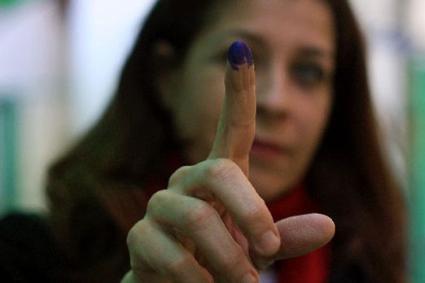It was with extreme trepidation that I went to watch “Hassan Tayara (Hassan Plane); I had heard that it was even worse than “The President’s Chef, which is like saying that there is something worse than being eaten alive.
Compare anything with “The President’s Chef and it will inevitably come out on top but, against all the odds, “Hassan Tayara isn’t a bad film – despite the presence of Razan Maghraby. Razan will be dealt with below because contemplation of her acting induces bile in such quantities that it threatens word formation.
Love across the class divide is the well-worn theme of “Hassan Tayara, in this case between microbus driver Hassan (Khaled El-Nabawy) and Malak, a minister’s daughter (Razan).
The minister is played by Ezzat Abu Ouf, who for perhaps the 38,797th time plays a middle-aged man in a suit smoking a cigar who demonstrates how important he is by never looking at his interlocutor, so pressing is his task of lighting his cigar.
In addition to being a dreamboat, Hassan is a bright graduate of law who has been driven to driving a microbus by life’s cruel vicissitudes. That he is a man of great potential and stern moral fiber is conveyed to us by his eccentric habit of fastening his seatbelt in the microbus (from whence the film’s title, boom boom) and the stern admonishment he gives his little brother for smoking in the street and neglecting his studies etc etc etc.
These admirable qualities come in handy when Malak and a friend are driving home from a disco in Malak’s convertible and are pursued by two young men, hungry for love.
Handsome Hassan sees the fracas in his rear-view mirror and chivalrously uses his microbus to force the naughty men’s car off the road. This, however, doesn’t endanger other motorists because luckily this palaver happens on the only road in Egypt without any other motor vehicles whatsoever.
Struck by Hassan’s act of kindness with his microbus, Malak uses her ministerial connections to obtain his car licences, which were seized when – in a rare lapse – he committed a traffic infraction. Unfortunately for us, she then insists on befriending him.
Eye candy is one thing, and a humanoid Cindy doll with the personality of a carrot, is another. Could the director not, at least, have ensured that Razan spoke with a passable Egyptian accent?
But then there is something infuriating generally about Razan. It is perhaps her smile, which is reminiscent of Jack Nicholson’s Joker, or that the one way in which she interprets extremes of emotion of any kind is by opening her eyes really wide, or the self-conscious coquettishness with which she flaunts her sexuality in every single scene of the film, including while she is being kidnapped.
Fortunately, Razan’s leggy, busty vacuousness is offset by Khaled El-Sawy, who manages to make the best of a limited role as Razan’s suitor.
El-Sawy is perfect as the unctuous, conniving businessman whose motivations behind his marriage ambitions to the minister’s daughter are professional, rather than romantic.
In one scene, El-Sawy the AUC graduate, demolishes Hassan the microbus driver in the most subtle and humiliating manner using the most notorious examples of Egyptian class snobbery.
In another he tells Razan’s best friend – who is also the minister’s personal assistant and the woman El-Sawy has been having an affair with to obtain inside information – that “there are two types of women; women you desire, and women you marry before summarily turfing her out of his car.
Class and labor relations, albeit light, provide the theme of the battle between the two men when Hassan – now in lawyer mode – takes on El-Sawy who has bought a concrete factory and promptly sacked nearly all its workers.
The battle between good and evil rages with wide-eyed TV reporter Razan in the middle, covering strikes in her Gucci outfits.
“Hassan Tayara manages to generate momentum and suspense that is squandered by the ending, which doesn’t so much leave strings untied as choke you with them.
In the penultimate scene we see El-Sawy smash his laptop, incandescent with rage, after he realizes that Hassan has extracted from it incriminating files.
The next scene sees Razan in the studio reading a marriage proposal from Hassan on autocue before Hassan emerges from behind the camera carrying flowers and flashing his beatific smile.
We are led to believe that everyone lives happily ever after by the painful last scene during which Hassan and Razan frolic by the Nile to music for what seems like eight hours, Hassan playfully carrying Razan while we all wish he’d throw her in.
But what happened to El-Sawy? And what about Abu Ouf’s veiled threats that Hassan should leave Razan alone, or else?
In fact such is the improbability of the film’s ending that a group of youths left the cinema asking, “But where the bloody hell has the minister gone?!
But then realism isn’t the point here. This is a film which, while it flirts with pressing social problems in Egypt – as is de rigeur in Egyptian mainstream filmmaking at the moment – doesn’t allow them to compromise the and-they-all-lived-happily-ever-after escapism which is the film’s raison d’etre.

